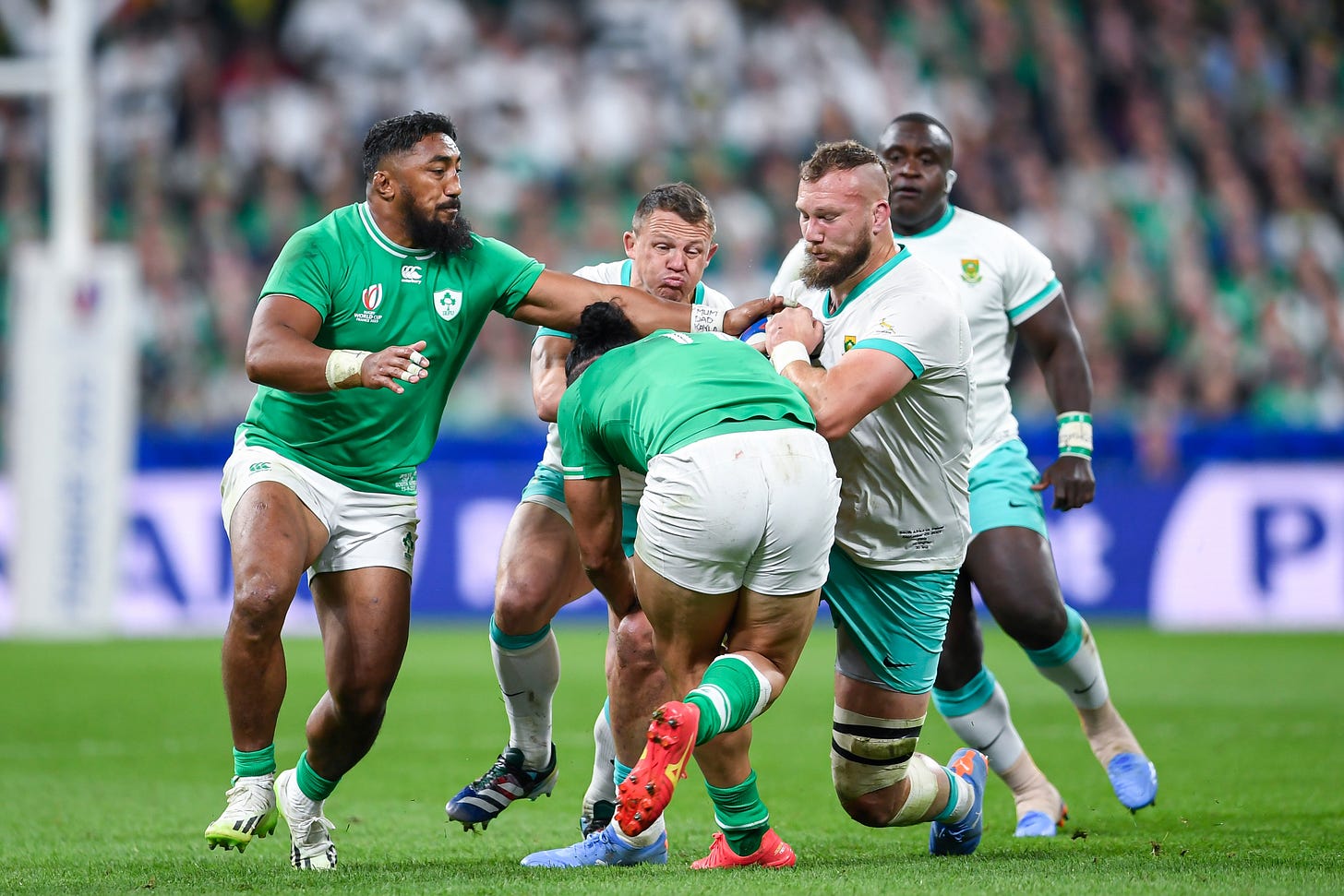Does Ireland Sitting Ahead of the Springboks Prove Rugby World Rankings Are ‘A Load of Nonsense’?
When it comes to rugby, few topics spark as much controversy as the official world rankings—especially when they don’t seem to reflect the ultimate prize: winning the Rugby World Cup. For Irish rugby fans, it’s a hard pill to swallow. Over the past five years, Ireland has been ranked as the number one team in the world on three separate occasions. Yet, when it comes to World Cup success, we’ve come up empty-handed. Meanwhile, South Africa, ranked lower than Ireland before the 2023 World Cup, now boasts four World Cup trophies, with two of those triumphs being back-to-back victories in 2019 and 2023. It raises an uncomfortable question: are the rankings meaningless?
The Puzzle of Rugby Rankings
Rugby rankings are calculated based on a team’s performance over a rolling four-year period. This system rewards consistency across all fixtures, from Six Nations matches to mid-year tours, right down to autumn internationals. Ireland’s rise to the top in the past five years wasn’t a fluke. The team has put together some outstanding performances—defeating heavyweights like New Zealand in Dublin, winning Grand Slams in the Six Nations, and demonstrating tactical brilliance under head coach Andy Farrell. Yet, the Web Ellis Cup, rugby’s most coveted prize, remains elusive.
So why is it that Ireland can be ranked number one, dominate the European circuit, and still crash out of World Cup quarterfinals (as they did in 2023 against New Zealand)? It points to a key flaw in the ranking system: consistency, though important, doesn’t necessarily translate into knockout-stage success. The Rugby World Cup is a unique beast, where a single bad day can end a team’s campaign. The rankings, built on long-term form, don't account for the cutthroat nature of the tournament.
The Springbok Supremacy
On the other hand, we have the Springboks. South Africa’s approach to rugby couldn’t be more different. While they might not always be the most consistent team year-round, they show up when it matters most—at the World Cup. Their 2019 victory came after a period of mixed results, and in 2023, they were not the top-ranked team going into the tournament. Yet, in both cases, they lifted the trophy when it was all said and done.
The Springboks have mastered the art of peaking at the right time. Their physical, tactical style seems tailor-made for knockout rugby, where every match is a battle of attrition. Their ability to grind out victories in tense, high-stakes situations sets them apart. While Ireland may be celebrated for playing beautiful, free-flowing rugby, the Springboks’ brutal efficiency has proven to be more effective in the one tournament that truly counts. This, many would argue, is why rugby rankings are “a load of nonsense.”
The Flawed Nature of Rankings
Rugby rankings have their place. They are a good barometer of form over time, rewarding teams that consistently win and perform well in a variety of settings. But they clearly aren’t the best predictor of World Cup success. The South African case proves that being the most dangerous team in the world doesn’t always align with being ranked number one.
Part of the issue lies in the fact that the rankings system doesn't put enough weight on World Cup results themselves. While these tournaments are factored into the rankings, a team’s performance in one World Cup cycle doesn’t dramatically alter their standing. In other words, a team can lose a World Cup quarterfinal and still sit at the top of the rankings based on prior results. Shouldn't the World Cup—the pinnacle of rugby—carry more weight in determining the best team in the world?
The Heartbreak for Ireland
For Irish rugby fans, it’s hard to reconcile being consistently ranked among the world’s best while continually falling short on the sport’s grandest stage. The heartbreak of the 2023 quarterfinal loss to New Zealand is still fresh, and it’s a painful reminder that world number one status doesn’t protect you from World Cup heartbreak.
There’s no doubt that Ireland is a brilliant rugby team, and under Andy Farrell’s leadership, we’ve seen some of our best-ever performances. But until that success translates into a World Cup final—or, dare we say, a trophy—the rankings will continue to feel hollow. If anything, being ranked number one adds pressure and expectation, making each World Cup exit feel even more devastating.
Conclusion: Ranking Reform Needed?
So, is it time to rethink the rankings? Should the system put more weight on the World Cup or even give it its own separate ranking? It’s certainly worth considering. Right now, it’s hard to justify a system where a team can be ranked number one multiple times in a five-year span without ever winning a World Cup, while another team with four World Cup victories isn’t consistently topping the list.
Until then, Irish rugby fans will have to live with the frustration of being world number one in everything but the one thing that truly matters: a World Cup victory
This ranking controversy might be the bitter pill that Irish rugby fans need to swallow, but let’s not forget—we’re still one of the best teams in the world.
And one day, that elusive trophy will be ours. Until then, we can take comfort in the fact that being number one means we’re still pushing the boundaries, and maybe, just maybe, our time is coming.




